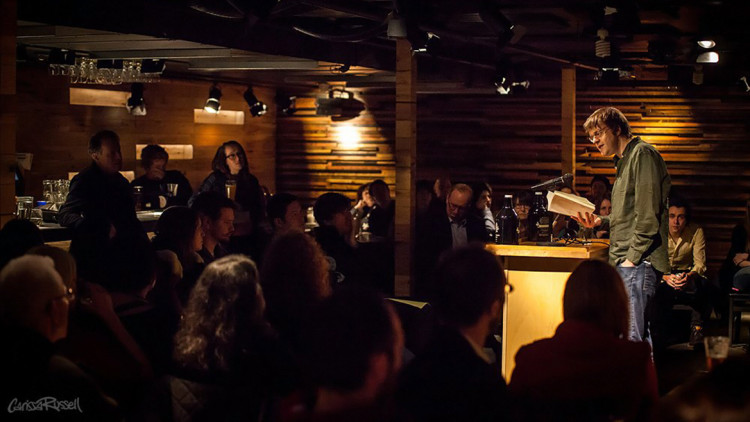“3 Questions For” is an ongoing series of quick sketch interviews with notable presenters at MDC events.
Michael W. Clune is a professor of English at Case Western Reserve University. He is the author of the memoir “White Out: The Secret Life of Heroin” and of two scholarly books, “American Literature in the Free Market” and “Writing Against Time.” His latest work, “Gamelife,” is the memoir of a childhood transformed by technology. Michael will be appearing at the Miami Book Fair in Cultural Explorers: A Reading from Essays and Memoirs on Sunday, November 22 from 3:30 p.m. – 4:30 p.m.
Gabriel Riera: What have you learned from computer games that you were unable to learn from people?
Michael Clune: One thing I learned from games is that death doesn’t make a big difference. Or rather, there is a place inside us where the prospect of our own death doesn’t matter very much. I learned this when I was very young, from the experience of dying again and again in a game, and immediately being reborn in the same place. The person I was in the game was a very minimal kind of person. A consciousness, directed at a blinking cursor a computer screen. Later in life I have been able to use this memory to access the space inside myself where death doesn’t matter. Some Buddhist teachings I discovered later confirmed this lesson, but I learned it in games. I write in the book of a number of spiritual lessons I learned from games. The location of the place in me where death doesn’t make a difference was the first.
GR: You have organized the narrative of this memoir around seven computer games you played as you were growing up. How does the structure of the book help you tell the story of your life?
MC: I began by wanting to write a book about my childhood, but found that many of my memories were frustratingly hazy. They were obscured by nostalgia, or by how other people have described their childhood. Then I found I had these very vivid, strange memories of playing specific computer games. When I pulled those game memories up out of my past, I found bits of my childhood clinging to them like barnacles. In writing about the uncanny way games seeped into my memory, I was able to rescue childhood textures, traumas, and relationships that I hadn’t been able to recall previously.
“Instead of a blank prison, solitude becomes the method of experiencing life beyond the borders of identity.”
GR: How has solitude enriched your experience of life?
MC: I think we feel the borders of our own identity most intensely when we are with other people. The difference between me and you is both a barrier, and a delightfully sensitive membrane for experiencing pleasure and terror. But when we are alone—really alone—we can be anything. We all need tools for learning how to use this power. Literature, music and games have been the most effective tools in my own life. Instead of a blank prison, solitude becomes the method of experiencing life beyond the borders of identity.
